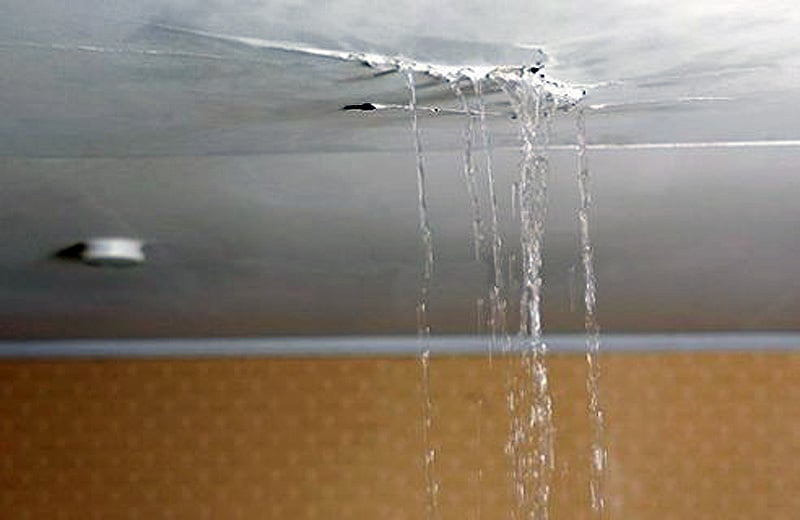The Six Most Common Water Leaks in Your Home: How They Happen and What to Do
The Six Most Common Water Leaks in Your Home: How They Happen and What to Do
Blog Article
On this page below you can get a bunch of great details related to Top Causes of Home Water Leaks.

Leakages not just trigger waste of water however can also cause unneeded damage to your home and promote unwanted natural development. Water leakages might go unnoticed since many of the pipework in our residence is concealed. By comprehending as well as looking for day-to-day circumstances that create leakages, you can protect your home from future leakages as well as unneeded damage. Today, we will consider six leakage creates that might be triggering your pipes to trickle.
Trespassing roots
Many water leakages start outside the house rather than inside it. You may notice wet spots or sinkholes in your backyard, as well as that could indicate that tree roots are getting into water lines causing water to leak out.
Rusty water systems
As time goes by, your plumbing system ages and also corrosion such as corrosion may start gnawing the pipes. This could be the reason for staining or bending on your water pipes. This asks for an evaluation with your plumber immediately. Consider changing the pipelines considering that they are at a greater threat of corrosion than the more recent versions if our plumbing system is old.
Faulty Pipeline Joints
Pipe joints can weaken over time, resulting in water leaks. If you have noisy pipes that make ticking or banging noises, specifically when the warm water is transformed on, your pipe joints are most likely under a whole lot of stress.
Immediate temperature level adjustments.
Extreme temperature modifications in our pipes can create them to broaden and get unexpectedly. This expansion as well as tightening may cause splits in the pipes, especially if the temperature level are below freezing. It would be best if you kept an eye on how your plumbing functions. The existence of the formerly stated scenarios regularly shows a high risk.
Poor Water Connectors
Sometimes, a leak can be caused by loosened tubes and also pipes that provide your devices. More often than not, changing is what triggers the loose water Links. You may locate in the case of a cleaning maker, a tube might spring a leak due to shaking throughout the spin cycle. In case of a water links leak, you might discover water running directly from the supply line or pools around your appliances.
Obstructed Drains
Blocked drains could be bothersome as well as inconveniencing, yet they can sometimes wind up triggering an overflow leading to break pipes. Maintain getting rid of any materials that may decrease your drains pipes that might obstruct them to prevent such aggravations.
All the above are sources of leakages but not all water leakages arise from plumbing leakages; some leakages could originate from roof covering leaks. All leaks ought to be repaired quickly to prevent water damages.
Leakages not just trigger waste of water however can also trigger unnecessary damages to your house and also promote undesirable organic development. By looking as well as understanding for everyday scenarios that create leaks, you can protect your home from future leakages and also unneeded damage. Today, we will look at six leakage causes that might be triggering your pipes to leak.
At times, a leak can be triggered by loose hoses and pipes that supply your appliances. In case of a water connections leak, you may notice water running straight from the supply line or pools around your devices.
How To Check For Water Leak In Your Home
How To Check for Leaks
The average household's leaks can account for nearly 10,000 gallons of water wasted every year and ten percent of homes have leaks that waste 90 gallons or more per day. Common types of leaks found in the home are worn toilet flappers, dripping faucets, and other leaking valves. These types of leaks are often easy to fix, requiring only a few tools and hardware that can pay for themselves in water savings. Fixing easily corrected household water leaks can save homeowners about 10 percent on their water bills.
To check for leaks in your home, you first need to determine whether you're wasting water and then identify the source of the leak. Here are some tips for finding leaks:
Take a look at your water usage during a colder month, such as January or February. If a family of four exceeds 12,000 gallons per month, there are serious leaks.
Check your water meter before and after a two-hour period when no water is being used. If the meter changes at all, you probably have a leak.
Identify toilet leaks by placing a drop of food coloring in the toilet tank. If any color shows up in the bowl after 10 minutes, you have a leak. (Be sure to flush immediately after the experiment to avoid staining the tank.)
Examine faucet gaskets and pipe fittings for any water on the outside of the pipe to check for surface leaks.
Undetected water leaks can happen without the home or business owner even realizing. If you suspect a water leak, but not able to find the source. It is time to contact a professional water leak detection service, The Leak Doctor.
How To Find a Water Leak In Your Home
https://www.leakdoctor.com/blog/How-To-Check-For-Water-Leak-In-Your-Home_AE197.html

I was brought to that editorial about How to detect water leaks in your home from an acquaintance on another site. Sharing is caring. You never know, you could be helping someone out. We treasure reading our article about How to detect water leaks in your home.
Show Details Report this page